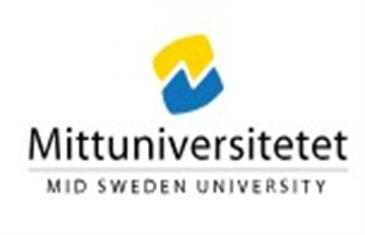Why Upskilling Is Important In Your Study Abroad Journey
July 25, 2023 • 666 Views

Study abroad expert advice
Don't waste time! just fill the form to get help.
With the increasing interconnectedness of the world, more students are looking for opportunities to study abroad to gain a broader perspective, experience different cultures, and enhance their education. Prestigious universities and colleges in certain countries are highly sought after by international students, leading to intense competition for limited spots. So the upskilling, or acquiring new skills and enhancing existing ones, is highly important in study abroad journey.
What Refers To Upskilling
Upskilling refers to the process of acquiring new skills, competencies, or knowledge to improve one's current skill set and enhance professional or personal growth. It involves developing expertise in specific areas or learning new technologies, methodologies, or practices that are relevant to one's field of work or study.
Why Upskilling Is Very Important In This Competitive World
Upskilling involves a proactive approach to acquiring new knowledge and improving your skills in a particular area. Here are some reasons of why upskilling is the basic requirement
Enhancing employability
When you study abroad, you'll be exposed to new learning opportunities and different educational systems. Upskilling allows you to acquire specialized knowledge and skills that are in demand in the global job market. This can make you more attractive to potential employers, increasing your chances of securing internships, part-time jobs, or full-time employment during or after your studies.
Academic success
Upskilling enables you to become a more effective learner. You can acquire study techniques, time management skills, and critical thinking abilities that will help you excel academically in your chosen field of study.
Problem-solving and innovation
Different countries and their educational institutions may have unique approaches to problem-solving and research. By upskilling, you can broaden your problem-solving abilities and gain insights into innovative practices from different regions, giving you a competitive edge in your academic pursuits.
Personal growth
Studying abroad offers a chance for personal growth and self-discovery. By upskilling, you can build self-confidence and independence, which are essential qualities for thriving in a new environment far from home.
Networking opportunities
When you study abroad, you have the chance to interact with students and professors from around the world. By upskilling, you can participate in academic and extracurricular activities that foster networking opportunities. These connections can be invaluable for future collaborations, research opportunities, and professional growth.
Bridging cultural gaps
Upskilling often involves group projects and collaborative learning experiences. Engaging in such activities helps you understand and appreciate the perspectives of others, bridging cultural gaps and fostering a sense of global citizenship.
Long-term career benefits
The skills you acquire while studying abroad can have a lasting impact on your career trajectory. Upskilling in areas of high demand can lead to career advancement, higher salaries, and greater job satisfaction in the long run.
Frequently Asked Questions
1 - Will upskilling affect my academic performance during my study abroad program?
Upskilling can complement your academic performance rather than hinder it. Many upskilling activities, such as joining clubs or taking language courses, can be done outside your regular academic schedule.
2 - Are there any financial benefits to upskilling during my study abroad program?
While upskilling itself may not have direct financial benefits, the skills you acquire can make you a more attractive candidate to potential employers, potentially leading to better job opportunities and higher earning potential in the long run.
3 - Why should I consider studying abroad?
Studying abroad offers a unique opportunity to experience different cultures, broaden your horizons, and gain a global perspective. It allows you to immerse yourself in a new environment and acquire valuable skills that can boost your personal and professional growth.
4 - How do I choose the right study abroad program?
Selecting the right study abroad program involves considering factors such as the destination country, available courses, language requirements, cultural experiences, cost, and program duration.
5 - How can I upskill during my study abroad journey?
There are various ways to upskill while studying abroad. You can take advantage of extracurricular activities, join clubs or organizations related to your interests, learn a new language, participate in workshops and attend seminars.
Related News
Consultants for Pakistan
Latest Scholarships
-
 USA
USASanta Fe Institute UCR Program 2026 in USA Fully Supported Undergraduate Research Opportunity
-
 Australia
AustraliaSwinburne University Scholarships 2026 for International Students, Australia
-
 Sweden
SwedenMid Sweden University Tuition Fee Scholarship Study in Sweden with Financial Support
-
 Australia
AustraliaGriffith University Research Scholarships 2026 in Australia – Fully Funded

 Scholarships 2026 – Fully Funded Oxford Degrees (24).jpg)
 Scholarships 2026 – Fully Funded Oxford Degrees (23).jpg)
 Scholarships 2026 – Fully Funded Oxford Degrees (22).jpg)
 Scholarships 2026 – Fully Funded Oxford Degrees (18).jpg)
 Scholarships 2026 – Fully Funded Oxford Degrees (17).jpg)

 Scholarships 2026 – Fully Funded Oxford Degrees (16).jpg)
 Scholarships 2026 – Fully Funded Oxford Degrees (15).jpg)
 Scholarships 2026 – Fully Funded Oxford Degrees (14).jpg)

.png)